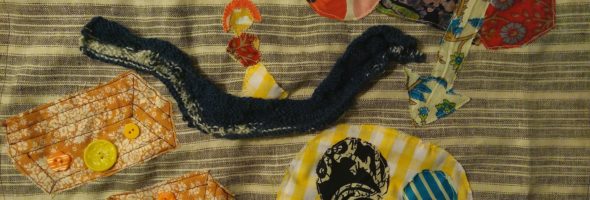(I find it difficult to concentrate when I’m writing, so I decided to craft something visual to make the process less one-sided. It helped me to create a picture of my thoughts, and allow myself to do something creative without judging the process or outcome.)
What is a reflection?
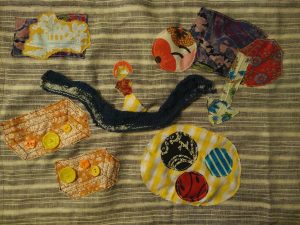
When I thought of ‘reflection’, I initially imagined something within the mind, something apart from the external world that happened only within me. This is certainly one aspect of a reflection. But then I thought of ‘reflection’ in terms of images and ecosystem-models. A ray of sun bounces off a surface, becoming something else in the process and moving in a new direction. A channel reflects the image of a house, turns it upside down and we can appreciate it from a new perspective. The way I see this course is as a reflection in this latter sense. This past semester, we have, individually and as a group, run head first into surfaces created by the institution of the university and bounced off in new directions. We have discussed attendance, assessment and access to resources and decided on new ways to do this differently from the established methods. We have also attempted to turn the university and its ways upside down, attempted to get gravity to release some assumptions and traditions in the process. We identified aspects of the university to be explored and perhaps improved upon in the next semester, including bureaucracy, sustainability and curricula. So, when the course itself is a reflection, why did we set ourselves this assignment? For me, this is a chance to see in which direction we are going, which way we bounced and are bouncing. I want to address what we have learned so far, what we have experienced that did not work, and what we still need to learn.
Space
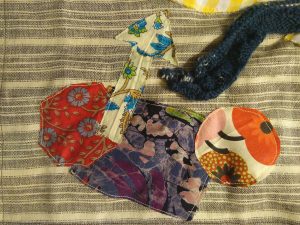
I hear people speaking about the power of a space often. The few times I have heard it mentioned in academic texts on sustainable communities or sociological research, it has been in abstract terms and often clouded in layers of analysis. This semester, I have experienced the importance of a physical space on group dynamics, my own well-being, and the creation of something new. The space in the ECA supported the direction we went in in many ways. Firstly, it created a feeling of being outside of the traditional structures of the university. The lecture theatre division between students and lecturers and the parallel rows discouraging discussion between students was replaced by a circle. This, I believe, was vital for our decision to have a horizontal structure and use consensus decision making. Without being able to see everybody in the circle, being within hearing distance of everyone, and being somewhat removed from the spaces that we associate with other structures, I do not think we would have been as successful. The ability to move around and mingle across different working groups and having the space for drawing and using the white board enabled the group creation and imagination-process of the future of the course as well. The workshops on community building, vision creation and group topics required that we felt comfortable in our space. For me, the space in ECA has become a part of the identity of Wednesday afternoons. I feel comfortable going in there, grabbing one of Sophia’s delicious apples and speaking and listening in the discussions. I do not feel as an intruder. This feeling, although difficult to assess in numerical terms or analytical language, is key for my involvement and, I think, that of others as well. We bring a lot of ourselves, our wants and needs and passions, into this project, and without a physical space where we feel comfortable to do this, these vulnerable things cannot carry the process forward.
In relation to permaculture, the group I am involved in, space is very important. We spoke at length about different options for gardens we could use in the next semester. Although we have not yet been in any of the spaces we have spoken about as a group, it is interesting that this has been so central in our going forward. It seems to me that we want our thoughts and ideas to bounce in the direction of the practical, towards a physical outcome that we can see and touch, not only speak and read about. Next semester, I want to explore the theory about the importance of spaces while actively working to understand this in relation to the physical space the permaculture group will inhabit. I do not know much about the theory of space, but this semester I have seen the beginnings of its influence on my own body and mind.
Time
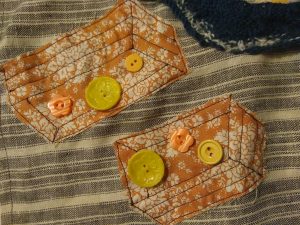
As a university student, time is always of the essence. Yet what does this really say about our society? We set out in the direction of an anti-capitalist critique of the university’s privatization, casualization of labor and exorbitant fees. In the group work we have kept this in focus. But an anti-capitalist critique should also be a critique of turning humans into machines of endless labor and slaves of time. There are endless pressures from all sides as to how young people should perform, what internships and extracurricular activities they should have on their CVs, what grades they should achieve. I do not think this is healthy, and I think it is a product of capitalism creating a market where we all have to outperform each other to get a job. For this course to truly be a critique, as a counter-culture movement in its own small way, I would like time to be more of a discussion point. At one point we discussed how the course sessions were to be organized and decided that small groups were to do this before each Wednesday. This is a good solution and is not extra time to a usual course in the sense that the practical work of creating a session replaces readings. Yet it is important that these sessions are recorded, and the work recognized by both the group and the people in the university who will be evaluating the success and time intensity of our course. It is through our actions that we can create a culture where time is respected and work is not casualized. Similarly, the speed at which we move the course forward has been a topic of discussion at different times. I have a difficult relationship with this. On the one hand, I want this to be a success with an outcome we can be proud of and show off to the university; a product reflecting that we have worked hard, pushed ourselves to create in the face of adversity. On the other hand, I am tired from overworking myself to meet all the pressures put on students, and I do not appreciate or condone pushing people to extremes in order to achieve ‘success’. I am not sure where the balance between redefining success, accepting a slow process and respecting free time vs. creating something tangible and using this opportunity to do something different lies. I hope to reflect more on this next semester and hopefully learn from permaculture theory and practice how to approach this tension.
Group dynamics
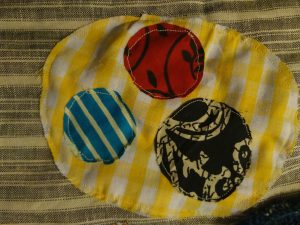
Contrary to every other course or assignment I have done at university so far, this course is based almost entirely on group work (with the exception of this assignment, which is notable). It has been a journey for our group since the start, and I believe the dynamics have changed a lot since the beginning. At our first session, there was a split between the people who felt comfortable with and had experience working within horizontal, consensus-based structures and the people who were new to this model. The latter group expressed frustration that the concepts were not being explained well and were difficult to act out without prior knowledge, whereas the first group dominated speaking time due to understanding the ‘system’, so to speak. Although this dynamic would not have been healthy in the long run, I think it is unavoidable in the beginning of any project were people come with such different backgrounds. The slow progress and verbalization of this dynamic in the first few sessions made the speakers aware they were taking up too much space, as well as providing a tangible ‘issue’ that the newcomers could practice participating through. It is my impression that most people now feel comfortable and empowered to speak in our group. This is also due to us spending time getting to know each other on a personal level. Personally, I have experience being in groups similar to this, yet I did not feel entirely comfortable until I knew the people in the room with me. Creating a learning environment where people are supportive colleagues rather than faceless students on parallel benches has been very important to my emotional involvement and excitement about the course. Without feeling that this course was something I was essential to in the sense that I, like everyone else, participate in the group we have created, I would probably not have enjoyed or engaged as much with it.
Creating a group that is dependent on a feeling of belonging, however, also has its flip side. Due to the identity we have built up as a group creating something ‘new’ and ‘exciting’, I do not think we have been very good in hearing critique and dissent from within the group. Perhaps we need to develop feedback sessions in the next semester, either anonymous or not, where there is more time and space to do this without judgement. I believe it would allow us to move forward with a more critical gaze on our procedures and with everyone involved.
The dynamics in the group work are interesting to reflect on as well. Since it has been a slow process to create groups and get started on work, there has been some discrepancy between the groups in terms of how much they have planned and how open they have been for newcomers. I have personally only been interested in the group on permaculture and have therefore not been ‘visiting’ other groups a lot. However, I feel that this issue is similar to the one we initially had of some people not being comfortable with our structure. For the groups to not become excluding to new members and ideas, we need to verbalize this discrepancy. It is difficult to say what system will work without putting it into practice first, but my initial feeling is that we should be better at feedbacking into the larger group what is happening in the satellite groups, and allow for newcomers to be ‘caught-up’ in at least the first few sessions in the next semester, if they wish to change group. This would both allow us to become closer personally, as I believe the groups have been formed to a certain extend around personal relationships, as well as challenge the idea that quick progress is more important than reflected engagement.
How we relate to traditional academia
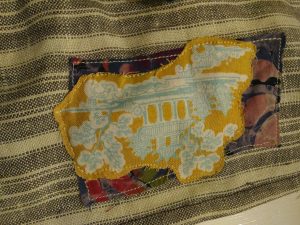
Our relationship with traditional academia in the course has been interesting to follow. As I have addressed, we have changed the structure of the course from a ‘regular’ university course in the humanities. However, when it comes to theoretical, or even just any, academic engagement, we seem to have inadvertently fallen into the opposite grave of the usual courses by accident. In the beginning, we engaged with a few readings and followed the reading list. This soon ebbed out, however, and I have read very little for this course. I think there are two main reasons for this. Firstly, we have not developed a structure for how we want readings to be assigned nor for how we want to use them. The matter of assignment is probably not too difficult to change in the next semester; it requires time and commitment by some people to do this more than anything else. I believe students as well as faculty can find appropriate readings to assign without issues. The matter of using them, however, is more interesting. It is my impression that the general sentiment of the group is that we want what we do to have use-value. If something does not create an output that serves our vision, we will not do it. Where do readings fall in this process? I think it is important that we keep ourselves informed by theory as we go along. If not grounded in it, it is at least something we can be critical of and apply as we see fit. I say this, because we as university students are equipped with the tools to understand and dissect academic theory, and with a wish to apply it as well, we can attempt to bridge the gap between the ‘real world’ and the ivory tower we criticize. Secondly, I fear that we have fallen into the trap of forsaking all the we are used to in the name of creating an alternative. While this is not a strange development, I think we need to be aware of it. This course is born from a place of critique, and therefore is inherently trying to move away from the established. This, however, should not be done blindly, and we must be aware of the underlying reasons for and consequences of doing away with typical academic methods, such as assigning readings. Hopefully we can reflect more on this as a group, as I am interested in hearing my fellow course-mates’ ideas on whether and how we should engage with readings and academia next semester. Personally, I hope to unite theory and practice in learning about permaculture. Although we probably will not be able to build our own garden in this short span of time, I hope we can visit established gardens and analyze the university through permaculture theory.
It is interesting to note that we decided to make the reflection piece a personal assignment rather than a group assignment. Although probably due to time pressure, I think it also speaks to assumptions that we have about academia in general. I am writing this from my winter break in Denmark, where I have spent a lot of time with my friends studying at Copenhagen University. Their school work is based very heavily on group assignments, with a requirement to meet with a study group at least once a week and with many exams being week-long group essays. This is very different from the Edinburgh-style, but I believe it teaches people valuable lessons on teamwork and the importance of not mistaking your own effort for the only effort out there. Perhaps we should be more reflective about how we see collaborative work and the structures we put in place for it to be successful.
My role
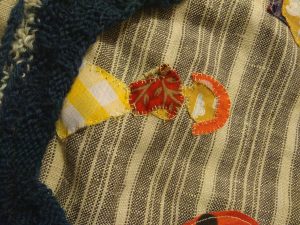
Over the past semester, I have seen my role in the group dynamic from different lenses. In the beginning, I was hesitant about the course and considered changing into something where I felt less of a pressure to participate and create something. As time went on and our course-mates became friends and colleagues, however, I felt more comfortable being able to set limits on how much I could participate in terms of time and emotional involvement. In many ways, this led me to participate more, because it was from a place of wanting to, not feeling that I had to. This has been pivotal in my experience of the course and is why I have put so much emphasis on group dynamics, space and time in this reflection.
This course has been and is a chance for me to understand a tension I feel between wanting to understand the world in the abstract, academic sense and wanting to do practical, hands-on work in a garden or a community. I often feel that I need to choose one or the other, but slowly I am realizing that they are compatible, indeed mutually beneficial, and that being a ‘jack of all trades’ is not a bad quality. I mean this in the sense that university environments often hold up an image of the ultra-specialized, PhD-type knowledge as the ideal; the end goal of education and learning. Yet is this not just another symptom of a society that seeks to create specialized labor that cannot interact with the world as a whole system? (Please note that I do not think people with PhD’s are uncritical or have made a poor life-decision; this is merely a critique of this being a universal ideal.) Perhaps knowing a little about a lot and being able to make connections across disciplines and practical and academic fields can be just as valuable as specialization. I hope to explore this tension further as I get to engage more with this bridging of knowledge next semester.
We are bouncing in many directions, both as individuals and as a group. It is exciting to see. I hope we will continue to be reflective; create more space for collective reflection. I am excited to see in which direction we will reflect ourselves in the new year.

